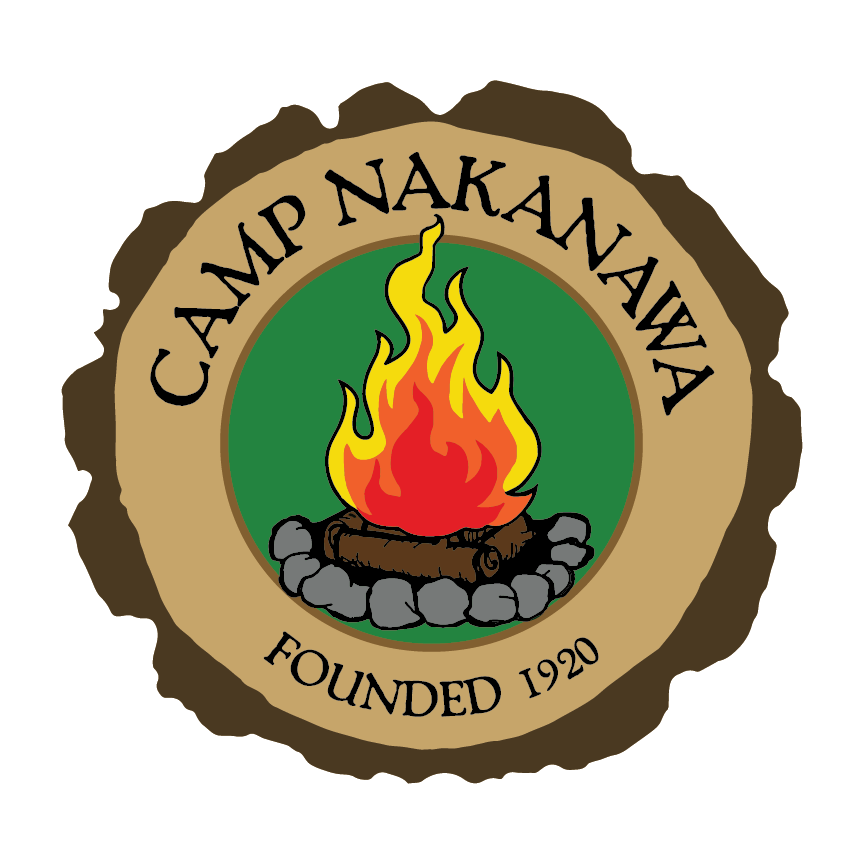Environmental Impact at Camp Nakanawa
Environmental awareness promotes Camp Nakanawa stewardship of our resources.
We enjoy an environment filled with nature’s beauty, and protecting that is important to all past, present, and future campers and counselors. Being environmentally sensitive is good business and socially responsible. Camp Nakanawa continues to make our own environment and the trip sites we visit always better than we found them.
Native Land Acknowledgement
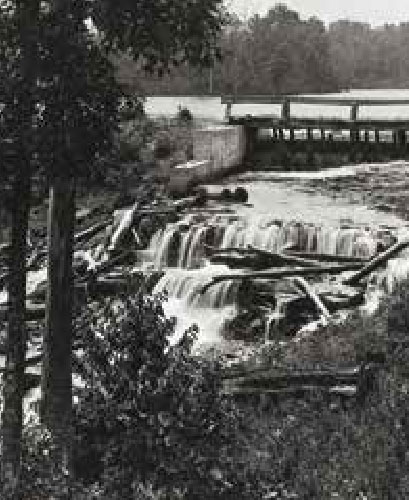
The lake and land now known as Camp Nakanawa has a unique history for our time. These woods and natural springs were inviting to indigenous people who inhabited it more than 5,000 years ago. University of Tennessee anthropologist Dr. Jan Simek has confirmed remarkable evidence here of social groups dating back to the Archaic and Woodland Periods.
These early kinship groups, called lineages, were likely transient during the harsh winter high on the Cumberland Plateau, but we live alongside kettle mortar holes in the rock surface at camp which testify to their presence and gathering habits. These round, deep holes were used for grinding and cooking chestnuts, hickory nuts and acorns native to the Plateau.
Camp Nakanawa has an abiding respect for the egalitarian leadership traditions, the reverence for nature and the importance placed on ceremonial gatherings of the tribes and lineage groups who preceded us here.
Cherokee, Shawnee and Yuchi Tribes
Eventually, these lineage groups developed into tribes, and the Shawnee, Yuchi, and Cherokee all lived in our area. The Cherokee was the most prominent tribe. Through the decades, arrowheads and other artifacts have been found on this property. Camp Nakanawa’s administration, campers and counselors believe in the Cherokee rule that:
“If you take care of the land, the land will take care of you.”
Camp Nakanawa nurtures and protects this land that is in our care by following approved environmental practices and the traditions of the Cherokee and other Native American Tribes. Camp Nakanawa would like to thank Clare Armstrong and Caroline Casey for their assistance in developing our Native Land Acknowledgement.
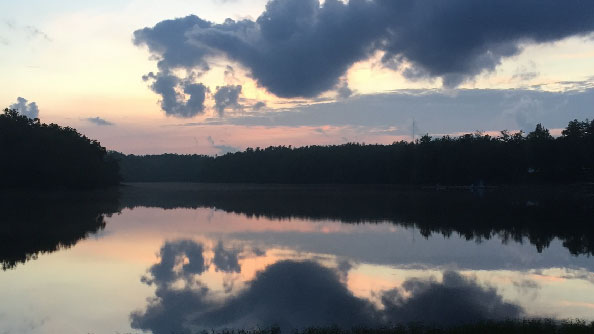
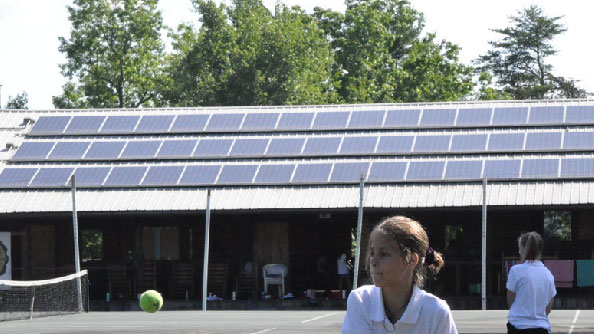
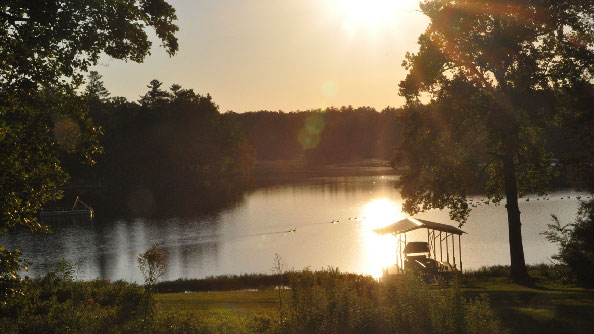
Environmental Impact Areas At Nakanawa
Cardboard
Camp Nakanawa generates a large volume of cardboard through foodservice packaging. All our cardboard in both Junior and Senior camps, usually around 120 cubic yards, is recycled through the Cumberland County Recycling Program.
Cooking Oil
100% of our cooking oil is recycled through the Cumberland County’s BIO Diesel Program.
Metals
100% of our metal, including tin, steel and old hot water heaters, are recycled at the Cumberland County Recycling Center.
Glass
We have only one product, sweet pickles, that is packaged in glass. We recycle these glass jars within our camp kitchens for storage.
Plastic
We recycle 100% of our #1 and #2 plastic, including plastic milk containers, cottage cheese containers and sour cream containers. These plastics are recycled through the Cumberland County Recycling Center. Beginning in 2013, all cardboard, plastics and metals were recycled through the Single Stream Recycling Program offered by Cumberland County.
Electricity
Camp Nakanawa will produce about 50% of its total yearly electricity consumption. Camp Nakanawa produces electricity through its 13.3kw system of 58 solar panels located on top of the senior camp barn. In 2011-2012 – 18,900kw were produced. In August 2012, a 12.9kw solar panel system, consisting of 54 solar panels, was installed in junior camp on the council house roof. We now have a capacity to produce 26.2kw per hour under optimum conditions. We have 30 solar exhaust fans to help cool the cabins, Egypt (the bathhouses), and the dining hall. These facility improvements and other energy-efficient initiatives will lower our carbon footprint.
Lighting
We are increasing our usage of long-lasting compact fluorescent bulbs and LED bulbs to conserve energy. All security lights have energy-efficient bulbs installed.
Sports Equipment
Archery targets are made of 99% pre-consumer recycled materials.
Stationery
Stationery used for correspondence is 100% recycled paper.
Water
Camp Nakanawa uses water processed and provided by the City of Crossville. This is for drinking water and cooking. A separate water system from Lake Aloaloa (Mayland Lake) is used for toilets, showers and for watering flower gardens.
Natural Gas
Energy-efficient, on-demand natural gas hot water heaters have been installed in the dining halls and bath houses in both junior and senior Camps. With the installation of these new hot water heaters, we have lowered our consumption of natural gas.
Radiant Heat
The library and director’s home are heated with an outdoor wood-burning furnace. The wood supply does not come from living trees but from trees that have been damaged by storms or high winds or have died due to disease, drought, or old age. Some trees are removed by a professional arborist that pose a threat to our campers, counselors, or buildings.
Laundry
Our laundry service provider has been doing our camper laundry for over 25 years. When they built a new facility, they made sure they purchased water saving machines that were efficient in their use of electricity. Mild, biodegradable detergents are used to wash the clothes.
Transportation
Camp Nakanawa always tries to improve our fuel efficiency by leasing fuel efficient passenger vans. We operate fuel efficient automobiles such as a Ford Fusion, 33 mpg, and a Toyota Prius V, 48 mpg.
Food & Paper Products
We use napkins, 8 inch plates, 10 ¼ inch divided plates and toilet paper that are produced from recycled materials. Over the decades we have requested from our food distributor, IWC, less packaging on our food products. Less packaging would mean less trash generated.
Our toilet paper contains 100% recovered paper fiber and 80% postconsumer materials, and meets the Green Seal™ environmental standard for bleaching, deinking, and packaging. It contains no added inks, dyes, or fragrances.
Trees
Elisabeth Mitchell, Mitch, second director of Camp Nakanawa, and Carson Tays planted thousands of White Pine trees throughout the property. We enjoy them today. Many of these trees are more than 100 feet tall. We have added to the tree population by replacing any removed trees with chestnut, buckeye, catalpa, hemlock, Norway spruce, maple, redwood, Colorado blue spruce, and Canaan fir.
Lakes
Lake Aloaloa (Mayland Lake) is regarded as one of the oldest and most pristine lakes on the Cumberland Plateau. This 113 year old lake is spring-fed and pollution free. The dam is inspected on a regular basis by the State of Tennessee Department of Environment and Conservation for safety. We strive to maintain its purity and natural beauty.
Hiking Trails
There is a four and one half mile hiking trail around Lake Aloaloa (Mayland Lake) with sections named in honor of our four directors, including Colonel Rice and Elisabeth Mitchell. This trail is maintained year-round. Various other trails are maintained for hikers and trail rides throughout our 1000+ acres.
